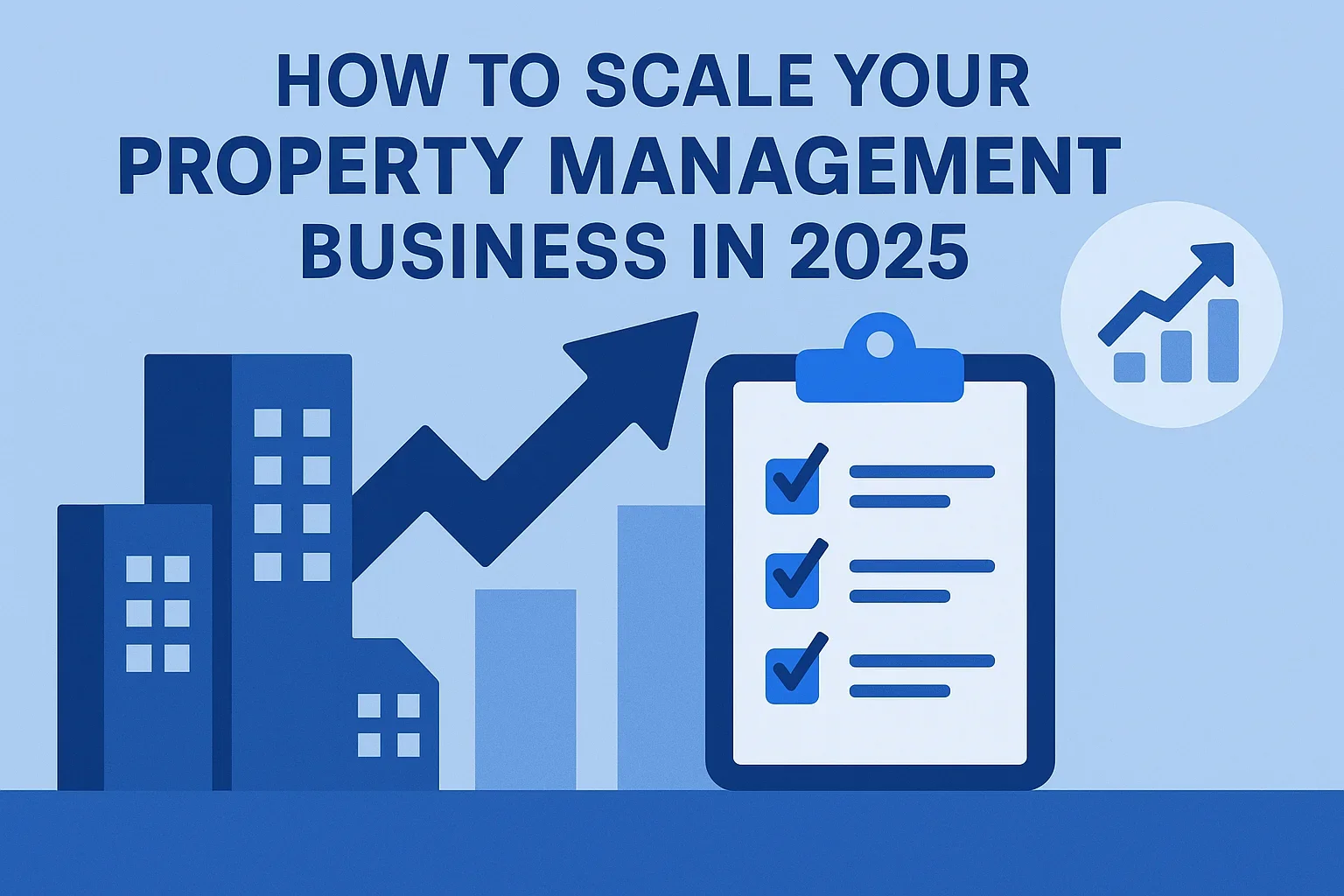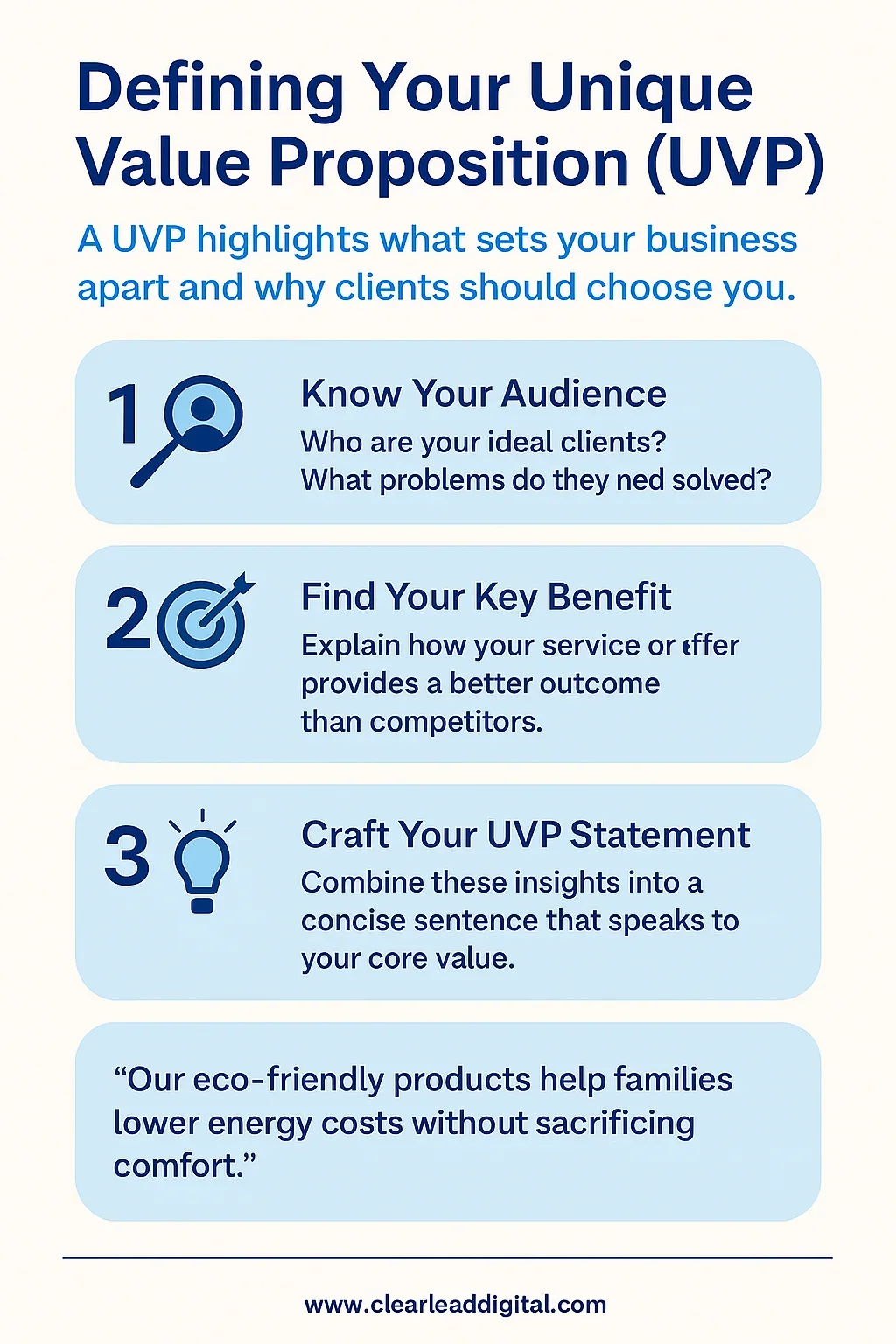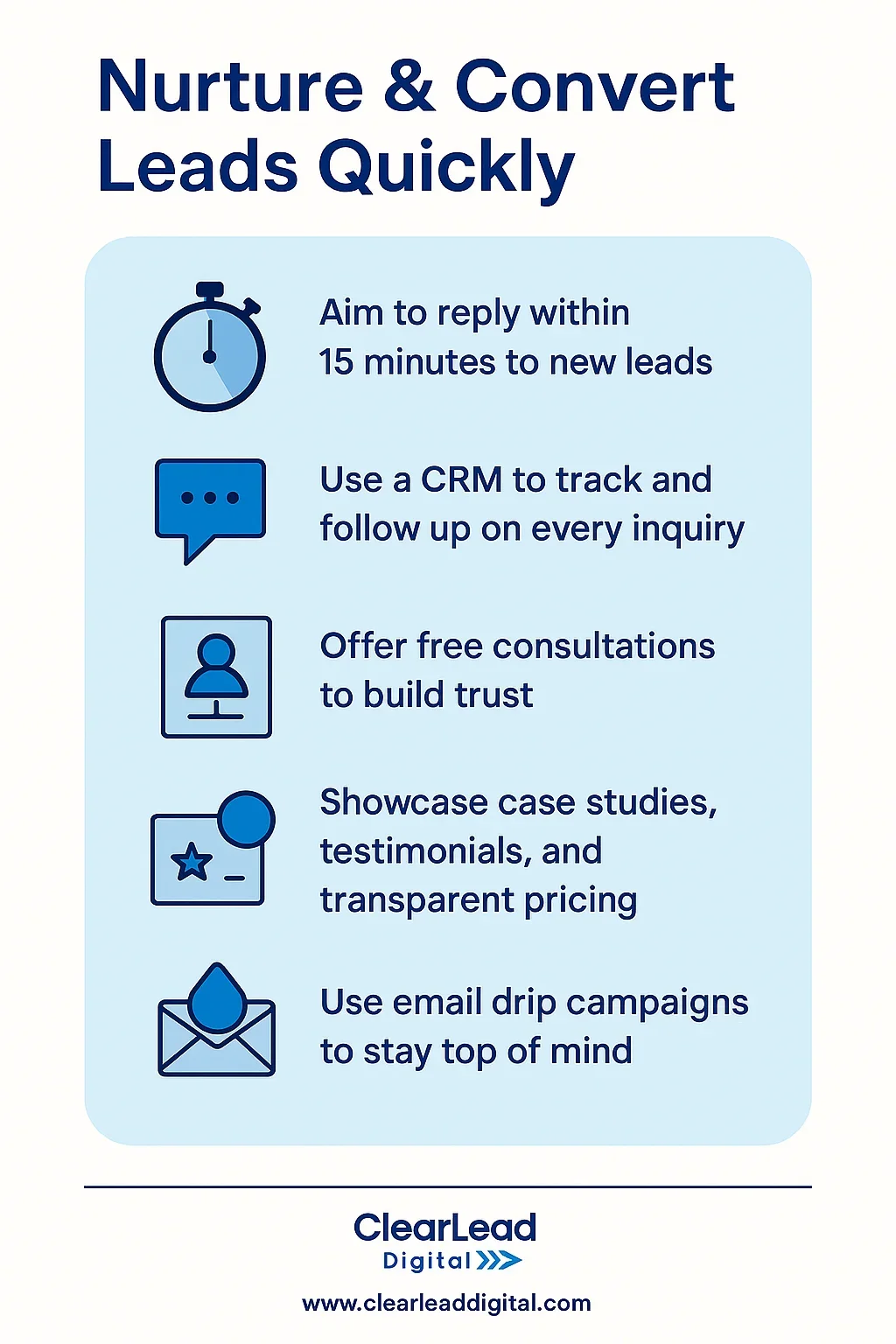How to Scale Your Property Management Business in 2025
Last Updated: November 26, 2025
Forget the recycled “25 good habits” lists. In today’s market, property managers face rising tenant demands, evolving laws, AI-driven competition, and sky-high owner expectations. If you want to grow your doors this year, you need more than hustle—you need strategy. ClearLead Digital shares 10 game-changing pillars that turn managers into market leaders.
Table of Contents
Introduction: Why 2025 Requires More Than “Good Habits”
If you’ve Googled tips for property managers, you’ve probably come across articles like “25 Habits of Successful Property Managers.” While those lists cover timeless traits like communication, organization, and integrity, they often stop short of addressing the realities of today’s market.
The truth is, property management in 2025 demands more. Rising tenant expectations, advanced fraud tactics, evolving local laws, and the explosion of digital marketing tools mean the “old ways” are no longer enough.
At ClearLead Digital, we help property management companies turn their websites into lead-generating machines. And we’ve learned that success comes not just from habits—but from strategic pillars that grow with your business.
Here are the 10 pillars you need in 2025 to boost efficiency, attract more owners, and scale profitably.
1. Define Your Unique Value Proposition
A successful property manager in 2025 isn’t “everything to everyone.” Owners want specialists who understand their exact needs.
Do you focus on single-family homes, luxury condos, or multifamily communities?
Are you the go-to manager for eco-friendly properties, student housing, or HOA compliance?
By defining your niche, you make your business easier to find online (think: “multifamily property manager in Orlando” vs. just “property manager”). This clarity also builds trust with owners who feel you’re the right fit for their properties.
2. Build a Scalable Business Structure
Growth without structure is chaos. Whether you manage 10 doors or 1,000, scalability requires:
Documented SOPs (standard operating procedures) for leasing, maintenance, and owner reporting.
Clearly defined roles like Leasing Agent, Maintenance Coordinator, Tech Specialist, and Accountant.
Cloud-based tools that keep your systems consistent as your portfolio grows.
Think beyond today’s workload—set yourself up for tomorrow’s growth.
3. Invest in Preventative Maintenance & Vendor Partnerships
“Fix it when it breaks” is no longer sustainable. Proactive maintenance saves owners money, extends property value, and reduces emergencies.
Conduct routine inspections (quarterly or biannual).
Use software that tracks recurring maintenance tasks.
Build a reliable vendor network with licensed, insured professionals.
Strong vendor partnerships mean faster turnaround, better pricing, and peace of mind for both you and your clients.
4. Embrace Technology & AI Tools
From leasing to accounting, technology isn’t optional anymore—it’s your competitive edge.
AI-driven tenant screening helps identify fraud and predict long-term rental behavior.
Property management software streamlines rent collection, reporting, and communication.
Predictive analytics forecast maintenance needs before issues spiral.
Owner portals give investors instant access to statements and performance dashboards.
The result? Fewer errors, happier tenants, and more confident owners.
5. Secure Operations: Fraud Prevention
Scams in property management are on the rise—from fake applicants to fraudulent payment methods. Protect your business and your owners by:
Requiring government-issued ID verification in applications.
Using secure, PCI-compliant rent collection systems.
Running multi-layer tenant background checks (credit, eviction, employment).
Conducting internal audits to prevent financial mishandling.
Security isn’t a “nice to have”—it’s a necessity.
6. Lead Generation That Actually Works
Great operations mean nothing without doors under management. In 2025, property managers need a steady stream of owner leads.
Proven methods include:
SEO-optimized websites that rank for local “property management + city” keywords.
Google Business Profile optimization for local visibility.
Paid ads targeting landlords in your market.
Realtor and vendor referral partnerships.
If your website isn’t generating leads, it’s a brochure—not a business tool.
7. Nurture & Convert Leads Quickly
Speed and consistency close deals. When a potential owner reaches out, a fast response can make the difference between winning and losing business.
Aim to reply within 15 minutes to new leads.
Use a CRM to track and follow up on every inquiry.
Offer free consultations to build trust.
Showcase case studies, testimonials, and transparent pricing.
Use email drip campaigns to stay top of mind.
Leads are expensive—don’t let them slip through the cracks.
8. Deepen Tenant Engagement & Community
Retention is the hidden profit driver. Keeping tenants happy reduces vacancies and protects cash flow.
Provide clear communication channels (text, portal, email).
Host community events for multifamily or HOA properties.
Send personalized updates—like seasonal maintenance tips or renewal reminders.
Offer loyalty incentives for long-term tenants.
Engaged tenants treat properties better and are more likely to renew.
9. Master Compliance & Legal Awareness
Florida’s new squatter laws, evolving fair housing guidelines, and short-term rental ordinances are just a few examples of how fast the legal landscape shifts.
Property managers must:
Stay updated on federal, state, and local laws.
Maintain required licensing and certifications.
Document everything to protect against disputes.
Partner with attorneys when drafting leases and policies.
Staying compliant protects you, your owners, and your reputation.
10. Commit to Continuous Learning & Industry Leadership
The best property managers never stop learning. In 2025, leadership means engaging with your peers, following industry thought leaders, and adapting to trends.
Join associations like NARPM® or your local Realtor® board.
Attend conferences and training events.
Follow trusted industry blogs and podcasts.
Mentor new property managers to strengthen the profession.
This isn’t just about personal growth—it positions your company as a trusted, forward-thinking brand.
Conclusion: From Managers to Market Leaders
Property management success in 2025 isn’t about “having good habits”—it’s about building scalable systems, embracing technology, and staying ahead of both competitors and industry changes.
When you position your company with these 10 strategic pillars, you don’t just manage properties—you build a business owners can’t wait to hire.
At ClearLead Digital, we specialize in helping property managers rank higher, capture more owner leads, and scale faster.
👉 Ready to grow your doors in 2025? Book a free SEO strategy session and let’s turn clicks into contracts.
Frequently Asked Questions
-
A clear value proposition helps property managers stand out in a crowded market. Owners want specialists who understand their property type and local laws. A defined niche builds trust and improves visibility online.
-
Scalability comes from documented processes (SOPs), clear team roles, and using cloud-based property management software. These ensure consistency whether managing 10 or 1,000 properties.
-
Preventative maintenance reduces emergency calls, extends property value, and saves owners money. It also improves tenant satisfaction, which leads to fewer turnovers and vacancies.
-
AI tools streamline tenant screening, detect fraud, predict maintenance issues, and automate communication. This improves accuracy, reduces risk, and enhances both owner and tenant experiences.
-
Fraud prevention requires ID verification, secure rent collection platforms, layered background checks, and internal audits. These steps protect both owners and management companies.
-
Most owners contact multiple managers. Responding within 15 minutes significantly increases your chances of winning the business. CRMs and automated follow-ups ensure no lead slips through the cracks.
-
Happy tenants renew leases, care for properties, and provide positive reviews. Engagement strategies like clear communication, events, and renewal incentives reduce vacancy and turnover costs.
-
Laws around squatting, short-term rentals, and fair housing are rapidly evolving. Managers must stay updated, maintain licenses, and document all processes to avoid disputes or penalties.
-
The industry changes fast. Joining associations like NARPM®, attending conferences, and networking helps managers stay competitive, informed, and positioned as leaders in their markets.



